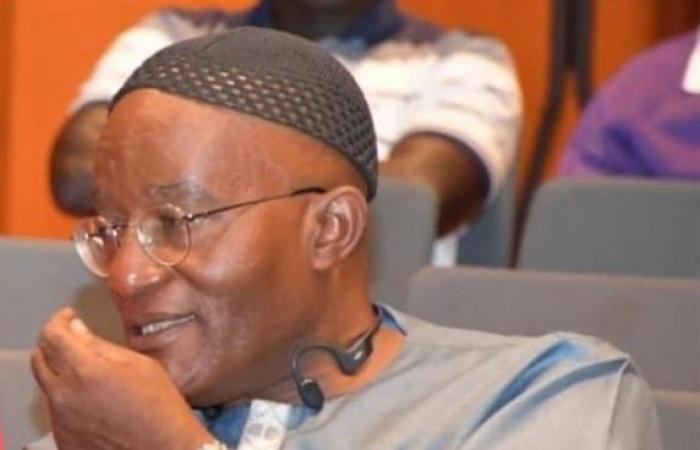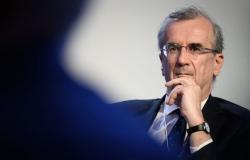Even in incantatory denial, the authorities of this country are forced to realize that the cost of basic necessities is not falling, and that the morale of the population overall is not enthusiastic. However, it is not a question of simply noting that things are not moving, or that the promises before the elections have not yet seen the beginning of execution – except with regard to the famous “surrender accounts”, hideously clones the Crei with its cookie-cutter prosecutions which, we later realized, only targeted one person.
What interests the Senegalese currently, and our authorities in mind, is to allow young Senegalese to find a job, and to be able to support themselves. After observing that the “Xeyu ndaw nyi” program did not fulfill all of its missions, despite the millions invested in it, President Diomaye Faye decided to replace it with “Youth Employment”. A nice boost to the promotion of national languages. But let’s move on. What will make Youth Employment work better than “Xeyu Ndaw nyi”? Even Pastef’s supporters are eager to find out.
Until now, as with the “Vision 2050” Reference, public opinion has the feeling that Macky Sall’s ideas and projects are reheated and served under another name, while the substance remains the same. However, if we say that these famous projects have not made it possible to increase the number of jobs in the non-state sector, we should perhaps change our method.
Abdoulaye Wade could have been criticized for many things in his governance. And rightly so. However, no one can erase the efforts he made to keep the family jewels, within the family. Already, as soon as he came to power, and against the advice of technical and financial partners, he did not hesitate to sabotage the Senelec privatization process. The Elyo-Hydro Quebec consortium, which was already taking up residence in the company, was forced to pack its bags. Senegal undoubtedly left a few feathers there. But when we look at where we are, especially in relation to certain African countries which have entrusted themselves to these foreign companies, we can only congratulate ourselves on the foresight of our former President.
Users of the Aline Sitoé Diatta boat who go to Casamance have realized over time that the Senegalese consortium which manages the ship is not doing too badly. He is doing so well that he was able, with the support of the State, to add two goods transport ships to the one offered by the German Cooperation to only transport passengers. The value of national expertise was also appreciated in the hotel sector, with the sale of the King Fahd Palace hotel to the group led by Mamadou Racine Sy. As with the ship linking Dakar to Casamance, President Abdoulaye Wade had in no way seen fit to consult the former managers of the hotel to decide to take over state heritage and entrust it to private nationals. More than 15 years after these bold decisions by the head of state at the time, Senegal has still not had to complain about this management. These entrepreneurs show that with the support of public authorities, they are able to create jobs, produce added value and contribute to GDP growth. There is therefore reason to extend their experiences to other sectors of the national economy.
Everyone boasts of the discovery of oil and gas in Senegal. Dreamers sometimes float the absurd idea of getting rid of foreigners who exploit these deposits that they have been able to extract from the depths through their know-how and their financial means. However, there are related sectors where national expertise can demonstrate its full capabilities and allow the country to derive enormous profits from its gas and oil resources. It would be quite unforgivable for political authorities to watch foreign capital monopolize the benefits of “local content” in this sector.
This is what a leader of a Senegalese employers’ confederation said a few years ago. This business leader complained that the State very rarely involves national investors in the capital of large Senegalese companies, or that it excludes them from calls for tenders concerning large-scale public contracts. For the years now that they have been shouting for “Economic Patriotism,” a regime that slings its patriotism should not ignore their cries. Better still, it should establish a framework in which Senegalese ideas for innovation should be able to flourish to their full potential.
-Today, it is no longer normal that the French can still control the flagship of Telecoms in Senegal, to the point of hindering its desire for expansion in other countries. If most of the management body is essential, the decision-making power at Sonatel still resides in Paris. It should be possible, for those who advocate “economic patriotism”, to gently kick out a company which has been able to largely recover its marbles since 1997 when it arrived. Over the years, despite all its performances, this company has not been able to develop jobs in this country, nor have it allowed the development of start-ups in its sector, because it has always treated them as competitors.
We can also avoid the easy criticism that would suggest that nationals only seek to rush into sectors developed by foreigners. There are sectors where the State wastes billions of francs each year, with very little impact on the national economy. That of national furniture is one of them. If the State organized the sector, it would find entrepreneurs who could equip all State services with products made in Senegal, and who would make “local consumption” proud, helping to rebalance the trade balance. of the country. All the countries we call developed have gone through these phases
Today, Senegal has the means to hold its own against foreigners in certain areas. All it takes is firm political will to change things. In all areas of production, the country could find business leaders who are able to develop the sector. And the State should have no qualms about supporting entrepreneurs of this type. Many countries, such as Japan, Korea, France and even the United States of America, have never hesitated to resort to practices of this kind. Emerging countries like Turkey are doing it.
And there are mechanisms which make it possible to prevent entrepreneurs thus supported from perverting the system by using the facilities offered by the State for their sole and exclusive benefit. The managers of the giant Samsung in Korea were sanctioned in their country for abuse of corporate assets, among other things. Korean leaders have never forgotten that this company was born thanks to the concern of the public authorities. And they make it clear to whomever it may concern if necessary.
For several years now, Nigeria has begun to promote its national “economic champions”. Which allowed him to create giants of nature like Dangote, in industry and agriculture, Tony Elumelu in banking, among others. All it took was for leaders to put in place a framework that would allow these small entrepreneurs to become great captains. Nigeria operates at its own pace and in its own way. Senegal could take inspiration from its model and adapt it to its know-how.





